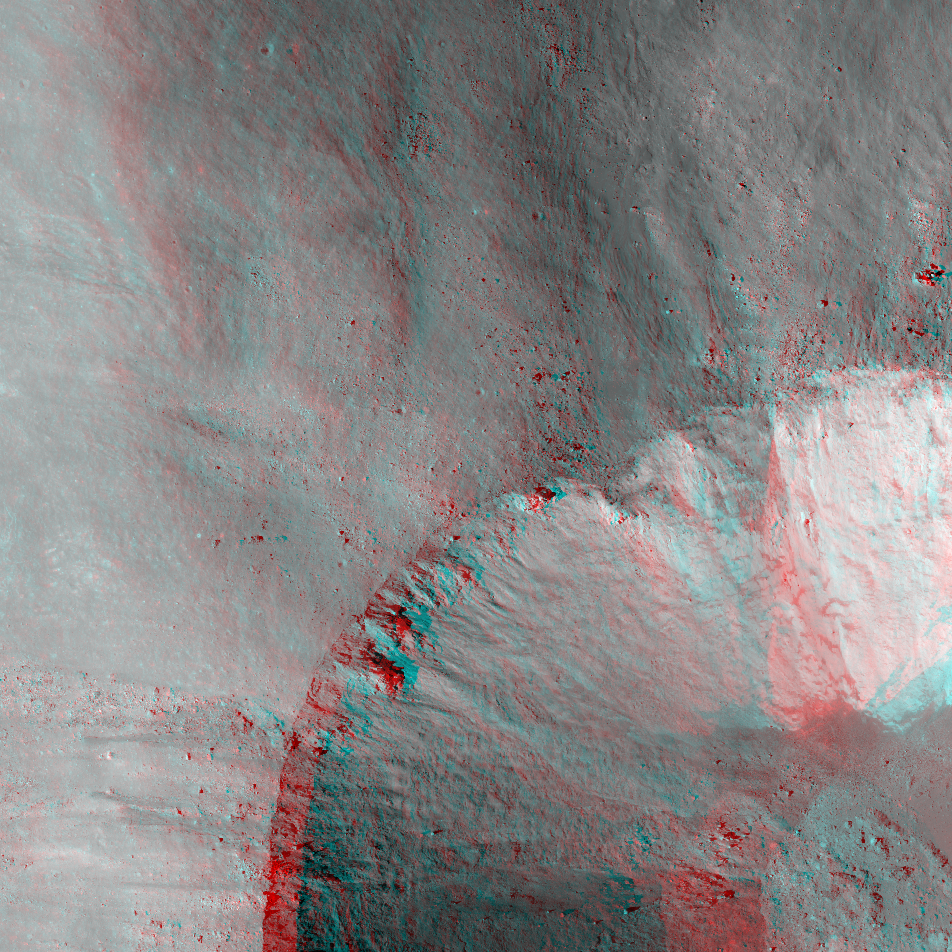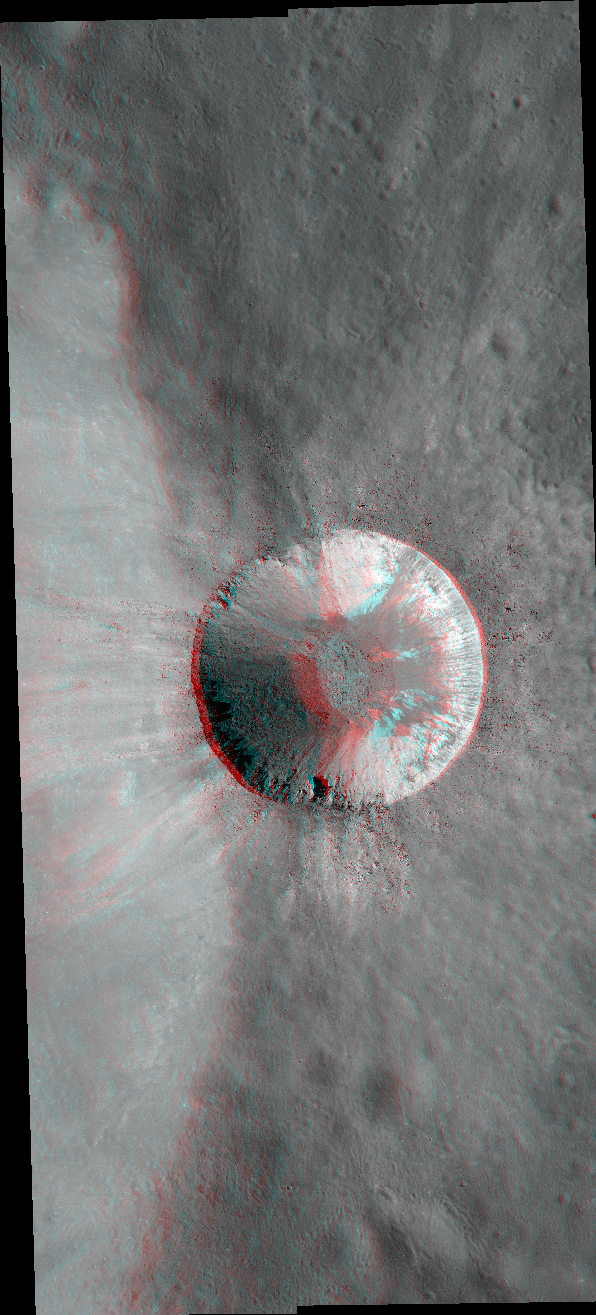
Eimmart A, 7.3 kilometers wide, is not large as lunar impact craters go, but its youth and location combine to make it spectacular. Because it is young — excavated by an asteroid or comet impact in the late Copernican, probably less than 100 million years ago — its rim is sharp, its impact melt flows and ponds are obvious, and the boulders strewn over the surface around it are prominent.
When it comes to rock types, the real estate mantra "location, location, location" applies to Eimmart A. The crater, located at 24.12ºN, 65.62ºE, sits on the rim of 40-kilometer-wide Eimmart crater, which is in 150-kilometer-long Mare Anguis (the Serpent Sea), which in turn overlies ejecta from the 555-kilometer-wide Mare Crisium impact basin. This means that dark rocks that occur mainly on the east side of Eimmart A are Mare Anguis basalts, while lighter Crisium rocks make up the west side.
Eimmart A is "two-faced" in other ways. The south and east flanks include many boulders, but melt deposits are small. The north and west flanks include some boulders, but a pair of three-kilometer-long melt flows dominate these areas. The south interior wall includes large outcrops: one triangular outcrop, 600 meters long, is the largest of any found on the Moon in a crater in Eimmart A's size range. The north, east, and west walls have smaller outcrops or none at all. What makes them so different?
Explore these features in stunning detail in the anaglyph and zoomable images below, and be sure to explore the links at the end of this post!

Related Links for this Anaglyph
Introducing LROC NAC Anaglyphs!
Related Featured Images
Out of the Shadows: Impact Melt Flow at Byrgius A Crater
On the Shore of the Bay of Rainbows
Published by Kristen Paris on 21 July 2018